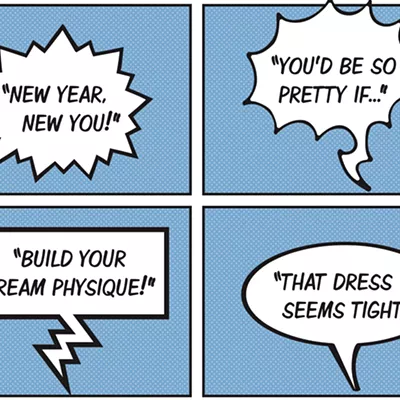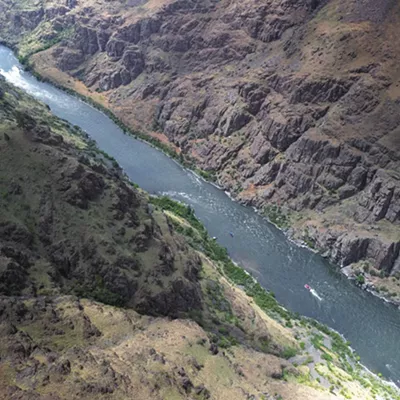I am sitting, my back against a sandstone wall; winter sun warms my face as it makes its last journey across the sky for 2022. Around me are the leavings of families who lived on this ledge thousands of years ago. Above me, one of their hands has been pecked carefully, meticulously, into the stone.
I want to press my hand against the one in the stone. I feel that by doing so I would gain wisdom and support from my ancestors. But I don't. I know the damage these modern hands can do, have done. So I hold the art with a stare and imprint the hand into my mind so that when I close my eyes, I'll see it.
I have come to make prayers for the year ahead. To rewind 2022 and to seek strength. Tomorrow, I turn 51, so the eve of a new year and a birthday have come to mean a lot to me. Have become a time for reflection, renewal. Guidance.
I am tired. Though filled with wonderful moments, 2022 also had its share of hard times. I play back conversations. Confrontations. I see the faces of students as they told me about being in an incident in a bar where, celebrating this new time in their lives, they were reduced by pejoratives spoken as threats. I recall the tears of a big-hearted colleague who was injured by the words of a small-minded person whose skin gave them a sense of rightness when speaking hurtful words and pressing stereotypes. I sigh recalling conversations I had with non-Native friends and colleagues whose careless speech called for "powwows" or referred to themselves as the "low man on the totem pole," both inaccurate and inappropriate.
I open my eyes and to a beautiful landscape, a landscape and land I am terribly in love with, and then comes the guilt. I'm not doing enough to take care of the planet. I'll give up plastic for good this time. I'll travel less. I'll start eating more sustainably. Reduce my footprint. And I recall the poster I saw for the missing Navajo woman and resolve to do more for #MMIWG. I need to raise more money for Native scholarships. I should volunteer more at the local shelter. I have to participate more fully in the nonprofit boards I sit on. I should visit my mother more often. Write more letters. Drink more water. Stretch, publish, write, give, more, more, more. I have to do more.
I turn away from the landscape and lie down in the soft dirt. There, still, the hand. Over the years, I have studied what the art on these rocks might mean. I have tried to put modern thought in ancient minds and make sense. But I have given up on that. I no longer try to understand what it meant to the artist, but what it means to me. The interpretation, like the creation, becomes personal rather than universal. With that change in understanding, came a change in seeing. Now, instead of the art being placed on the rock, I see it as coming out of the rock. As if the artist's spirit is inside the rock, pressing the hand outward.
I no longer try to understand what it meant to the artist, but what it means to me. The interpretation, like the creation, becomes personal rather than universal.
A few weeks ago, an elder said to me, "Everything matters or none of it does." What could this mean about the single hand on the rock? I allow myself to see the levity I need, and the hand becomes not only the single hand raised to say, I am here, but the hand that is held up for a high-five slap. I am one. I am here. These two hands cannot do everything, but what they can do matters, and what they don't do is even more important.
American culture presses us to believe we are not enough. We do not have enough, we do not give enough, and we do not want enough — especially from ourselves. We tend toward all or nothing thinking, go big or go home. Feel guilt when we give $5 instead of $10, feel remorse when we speak up only once for ourselves or our beliefs, get shut down when our attempts to make positive changes fail. And so often we just stop doing, stop trying, because we believe it is never enough. But all of it matters or none of it does. For me, that single hand was a message from the spirit of the stone, from my ancestors, that acknowledged me, reminded me that every effort, like every peck to make that outline, matters.
As we move into this new year, in the spirit of community, I want to give you a hand. I see you. Sure, there will be challenges ahead, but thinking back to the hand, I also see it as an ancestor reaching out, saying, "I'm here for you." And they are. And I am. And together, we embrace these hands, and walk through this year together, in beauty. ♦
CMarie Fuhrman is the associate director of the graduate program in creative writing at Western Colorado University, where she also directs the poetry program and teaches nature writing. She is the current Idaho Writer in Residence and author of the collection of poems, Camped Beneath the Dam, and co-editor of Cascadia Field Guide: Art, Ecology and Poetry. She resides in the mountains of West Central Idaho. Visit CMarieFuhrman.com

























